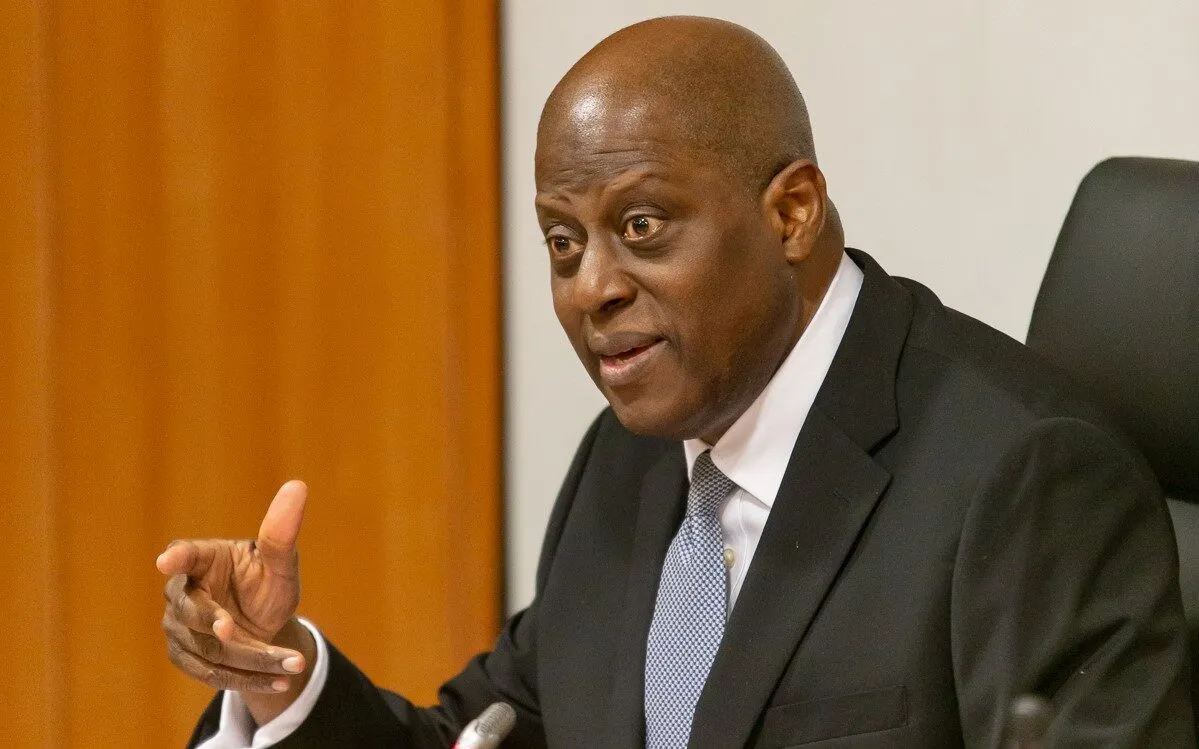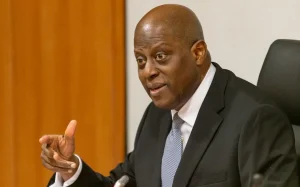
AFRICAN MONETARY INSTITUTE KEY TO COMMON CURRENCY GOAL – CARDOSO

The Governor of the Central Bank of Nigeria (CBN), Mr. Olayemi Cardoso, has described the proposed African Monetary Institute (AMI) as critical to the realization of a common currency in Africa.
He spoke at the 5th African Union Extraordinary Session of the Specialized Technical Committee on Finance, Monetary Affairs, Economic Planning and Integration: Ministerial Meeting, today, in Abuja.
His words, “As we converge to consider and adopt these critical documents, we are reminded of the central role that AMI and the AFSM (African Financing Stability Mechanism (AFSM) will play in fostering macroeconomic convergence, financial stability, and economic resilience across our continent
“The establishment of the AMI will mark a significant milestone in Africa’s journey toward a common currency, while the AFSM represents a proactive approach to safeguarding financial stability in an increasingly uncertain global economic landscape.”
The Governor added that in alignment with efforts to build a stronger and resilient African financial architecture, CBN had implemented significant reforms aimed at fostering stability, resilience and growth.
In his address, the Minister of Finance and Coordinating Minister of the Economy, Mr. Wale Edun, observed that African economy has experienced significant challenges including poverty and inequality, dependence on aids, global competitiveness, periodic debts crisis, small sizes of our economy, climate change among others, in the last few years.
He said, “You will agree with me that we can overcome these challenges collectively by building a strong economy and using reforms to strengthen the economic management system of our continent beginning with the unanimous endorsement of the resolutions presented before us for the adoption of the Heads of States and Government and Nigeria remains eternally grateful to all, especially our formidable team of experts who have all harmonized the divergent views and interests into this single document.
“As you are all aware, Excellencies, debt-refinancing needs are high, access to liquidity is at a high cost and access to capital markets for emerging markets (EMs) is limited.
“Africa’s public debt has increased significantly over the years, becoming more non-concessional and short-term. The debt service burden is therefore higher and has increased financing risks. As you must have noticed, since 2011, the average maturity of Africa’s external debt has fallen from close to 23 years to around 17 years in 2022.”
Mr. told participants, “Nigeria is not only ready to host the African Monetary Institute (AMI), which is the precursor to the operationalization of the African Central Bank (ACB) but poised to partner and collaborate with all in making these great initiatives work for the attainment and enhancement of the Agenda 2063 and our dream of ‘the Africa We Wan.t”’
As I finish Excellencies and Distinguished Participants, the initiative by the African Development Bank Group (AfDB) to develop the African Financing Stability Mechanism (AFSM) as a tool for coping with African Debt refinancing problems which has remained the main headache of the managers of the African economy is highly commendable and I take this opportunity to invite my colleagues to make this history happen in the historic city of Abuja by commending these resolutions for the adoption of our leaders come next February.
Prof. Kevin Urama, Vice President and Chief Economist of the African Development Bank said that the high cost of debt service was deepening the severity of the debt burden on the continent.
His words, “Africa’s average public debt ratio, which rose from 54.5 percent of GDP in 2019 to 64 percent in 2020, stabilized at around 63.5 percent from 2021–23.”
